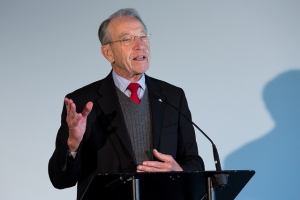Support migrant centric journalism today and donate

Texas republican senator John Cornyn introduced the bill, entitled the "Border Security and Immigration Reform Act of 2003". The legislation is similar, but much more expansive, than the H-2B temporary worker category.
The bill has been referred to the committee on the judiciary. It would only be available to nationals of countries that sign on to participate in the guest worker programme and which satisfy certain conditions of standards of eligibility.
A foreigner would be admitted under a new 'W' non-immigrant visa category for two years and on completion he would have to leave the US and remain in his home country for a continuous period of one year. The total period of admission for a 'W' non-immigrant would not exceed six years.
The Cornyn bill envisages that an employer, in order to obtain authorisation to employ a 'W' non-immigrant, would have to conduct a labour market test and attest that he could not find a qualified and willing US worker to fill the vacancy. Employers would also have to ensure that the foreigner is paid a minimum wage and that his employment does not affect the working conditions of other employees.
According to the bill, illegal immigrants would be required to return from the US and re-apply through legal channels. The programme is also an amnesty. Workers participating in the programme "shall be absolved of all liability for illegal behaviour, as such behaviour pertains to immigration status of the alien that occurred before the alien's participation in the guest worker programme."
The 'W' visa workers would also be able to qualify for permanent residence or Green Cards. For the first time, the US government would have a point system to determine the priority in granting permanent residency. Applicants who have worked continuously for three years under the programme would be given priority. However, workers can only apply for a Green Card when the applicant has returned to the worker's home country. Other similar immigration reforms include those tabled by Senators Edward Kennedy-John McCain and another by Tom Tancredo. The Kennedy-McCain Bill allows for up to six consecutive years of authorised work.





















